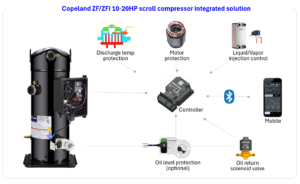Thursday, 5 March 2026
World-first trial highlighting link between alcohol and breast cancer
To increase alcohol literacy and address harmful consumption among midlife and older aged women Monash University, Turning Point and the Victorian Health Promotion Foundation (VicHealth) in Australia have developed a successful alcohol…

To increase alcohol literacy and address harmful consumption among midlife and older aged women
Monash University, Turning Point and the Victorian Health Promotion Foundation (VicHealth) in Australia have developed a successful alcohol intervention for women attending breast screening appointments, as part of a world-first trial.
Alcohol is a major modifiable risk factor for female breast cancer; in Australia, alcohol consumption accounts for 6.6 per cent of cases in post-menopausal women, and 18 per cent of breast cancer deaths. Yet, awareness of this risk remains surprisingly low and is not systematically addressed in healthcare settings.
Research shows women drinking at even very low levels face an elevated risk of breast cancer. Risky drinking has significantly increased among midlife and older aged women, a cohort that is at highest lifetime risk of developing breast cancer.
The joint project from Monash University, Turning Point and VicHealth saw researchers work with women to develop Health4Her, a brief alcohol intervention tailored to the breast screening setting.
The Health4Her intervention included personalised feedback about drinking levels, information about alcohol harms, positive messaging about the health benefits of reducing consumption, and strategies to keep drinking in a low-risk range.
Health4Her also included information on exercise and keeping weight in a healthy range as other ways to reduce breast cancer risk, so that it was relevant to all women attending routine breast screening, and allowed high-risk alcohol consumption to be targeted in a discrete, non-stigmatising way. Supported by VicHealth, the Health4Her intervention was tested in a randomised controlled trial.
“The findings from the Health4Her trial are incredibly promising,” said Kris Cooney, Executive Manager, Policy, Strategy & Impact Group, at VicHealth. “We know there are proven links between alcohol and cancer, yet alcohol companies often downplay the harm their products cause. Health4Her shows that giving women targeted, practical and current information about the link between alcohol products and cancer in a supportive environment like a routine breast screen, has the potential to change behaviour and ultimately reduce cancer risk.”
Image credit- unsplash
Technology
Copeland Launches ZF/ZFI 10-20HP Scroll Compressors
Mar 05, 2026 | Company News
WA Scientists Discover New Deep-Sea Crustacean Stocks with Strong Commercial Potential
Mar 05, 2026 | Australia
Food Testing
NSF and Circle H Collaborate to Enable Global Certification Access
Mar 04, 2026 | Company News
Australian Medical Bodies Push for Compulsory Health Star Labelling
Feb 24, 2026 | Australia
Tim Hortons Singapore Secures Majlis Ugama Islam Singapura Halal Certification Ahead of Ramadan
Feb 23, 2026 | Company News
More Popular
Copeland Launches ZF/ZFI 10-20HP Scroll Compressors
Mar 05, 2026 | Company News
Singapore Expands Support for Local Farms to Strengthen Food Security
Mar 05, 2026 | Food Security






